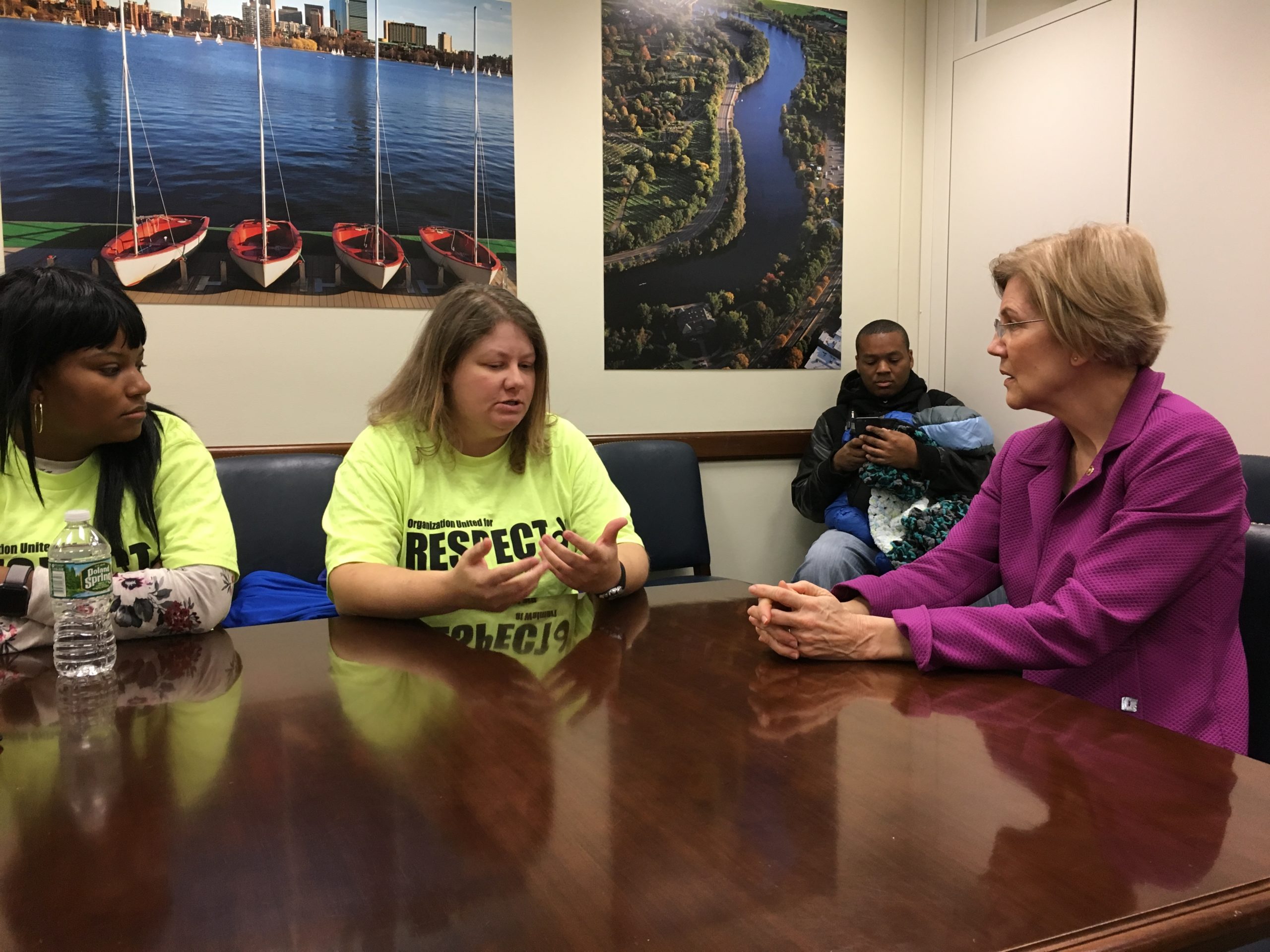Abortion rights, women of color, and LGBTQI+ people are under attack. Pledge to join us in fighting for gender justice.
#MeToo and The Power of Speaking Out—How Far Have We Come?

 Since #MeToo went viral one year ago, we have seen how individuals bravely sharing their stories has changed the way that survivors are heard and believed and led to important moments of individual accountability. But as the last few weeks have shown us, there is still much work to be done.
Since #MeToo went viral one year ago, we have seen how individuals bravely sharing their stories has changed the way that survivors are heard and believed and led to important moments of individual accountability. But as the last few weeks have shown us, there is still much work to be done.
The power of survivors coming together to share their experiences led to the creation of the TIME’S UP Legal Defense Fund, which is housed at and administered by the National Women’s Law Center Fund LLC, and connects those who experience workplace sexual assault, harassment, abuse and related retaliation with legal and public relations assistance and helps defray attorney fees and costs in select cases. Since its launch on January 1, 2018, over 3,500 people—many of them empowered by the MeToo movement—have reached out to the TIME’S UP Legal Defense Fund for assistance.
MeToo has also inspired significant reform in workplace harassment law at the state level. States have enacted legislation to prohibit employers from requiring employees to sign nondisclosure agreements as a condition of employment and to limit employers’ ability to force employees to agree to arbitrate harassment claims—measures that will help lift the veil of secrecy that has allowed employers to sweep harassment under the rug. Several jurisdictions have expanded protections against workplace harassment to reach independent contractors, interns, or graduate students—some of the workers most vulnerable to harassment, and enacted key prevention measures, including mandatory training and policy requirements for employers. One state successfully passed a measure to gradually raise the minimum wage for tipped workers to match the regular minimum wage, making it less likely that tipped workers in that state will feel forced to tolerate sexual harassment from customers. And state legislatures have been actively working to reform their own institutional policies and processes for stopping and preventing harassment which MeToo helped reveal is all too prevalent in many state legislatures.
But we still have a lot of work to do. While progress is being made in some states, similar progress is absent at the federal level. Although Congress introduced a handful of bills addressing critical workplace harassment issues, some of which had bipartisan support, it has failed to move them forward. Federal legal reforms are incredibly important because an individual’s right to work free from harassment should not depend on where she lives. Moreover, many of the state and corporate policy reforms over the past year have focused on “sexual harassment” only. But sexual harassment often occurs alongside or in combination with other forms of harassment and discrimination, like race-based harassment. And many individuals, like women of color, experience intersectional harassment – like racialized sexual harassment. Any measure to address workplace harassment must recognize that immigrants, women of color, low-wage workers, LGBTQ workers and people with disabilities are at out-sized risk of harassment, which is further compounded by their being more likely to be ignored when they challenge harassment. This is why we need to fight for workplace harassment protections that address all forms of discrimination and harassment.
And, as was demonstrated so disturbingly last month during the Kavanaugh hearings, even in the wake of the powerful MeToo movement, harassers and assaulters are still not always held accountable. People still try to explain away a survivor’s truth and apply double-standards about whose pain matters more: in the case of Dr. Blasey Ford and Judge Kavanaugh, the pain of a woman who has had to live with the trauma of attempted rape for over thirty years, or a powerful, privileged man potentially losing a job he was never entitled to in the first place. This is nothing new. There is a long history of survivors, particularly Black women survivors, courageously testifying about their experiences with harassment and assault only to have their stories cast aside by powerful institutions. While we have witnessed unprecedented change in culture and policy in the last year, it will take a more sustained commitment from lawmakers, employers, and the public to fully uproot the deeply entrenched cultural norms and institutional structures that have allowed sexism and racism to persist in our workplaces and our society.
That is why, yesterday, the National Women’s Law Center along with over 30 other advocacy organizations released a call for legislative action to eliminate workplace harassment and discrimination. The call to action provides a roadmap for meaningful and substantial reforms that will get to the root of the power imbalances that have allowed harassment to persist, and to ensure the safety and dignity of all workers.
As we honor the collective power of speaking out, it is important to remember that survivors have never owed us their stories. We, as a country, however, have long owed survivors cultural and institutional change. It is time for our lawmakers to deliver concrete solutions to all survivors, whether they choose to share their stories or not.





